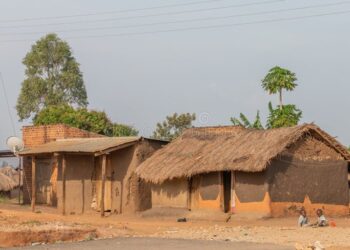Dodoma, Tanzania – Tanzania’s President Samia Suluhu Hassan was sworn in on Monday at a restricted ceremony in the administrative capital, Dodoma, following a disputed election that sparked deadly protests across the country.
The inauguration took place on government grounds and was limited to invited guests — a sharp departure from past ceremonies traditionally held in packed public stadiums.
Tensions remained high in Dar es Salaam, the commercial capital, after three days of violent demonstrations that left streets deserted and many businesses shuttered. Gas stations and grocery shops stayed closed, while government employees continued working from home. In Dodoma, residents also chose to remain indoors.
The October 29 election was marred by violence as protesters took to the streets to denounce the vote and halt the counting process. The government deployed the military to support police efforts in dispersing crowds. Internet services were intermittently disrupted, affecting communication and travel across the country.
Authorities have not released an official death toll, but U.N. Human Rights Office spokesperson Seif Magango said there were credible reports of at least 10 deaths in Dar es Salaam, Shinyanga, and Morogoro.
The government has also postponed the reopening of universities, initially scheduled for November 3, due to ongoing unrest.
The main opposition party, Chadema, rejected the election outcome, calling it fraudulent.
“These results have no basis in reality, as the truth is that no genuine election took place in Tanzania,” Chadema said in a statement.
Chadema’s leader, Tundu Lissu, remains in prison after being charged with treason for advocating electoral reforms. Another key opposition figure, Luhaga Mpina of the ACT-Wazalendo party, was barred from running in the election.
Presidents from Mozambique, Zambia, Burundi, and Somalia attended Monday’s swearing-in ceremony.
Kenyan President William Ruto urged Tanzanians to maintain peace and engage in dialogue to safeguard national stability. Ruto did not attend the event and was represented by his vice president.
Meanwhile, unrest has also affected regional trade. The Namanga border crossing between Kenya and Tanzania remains closed, leaving trucks carrying agricultural goods stranded for nearly a week.



















